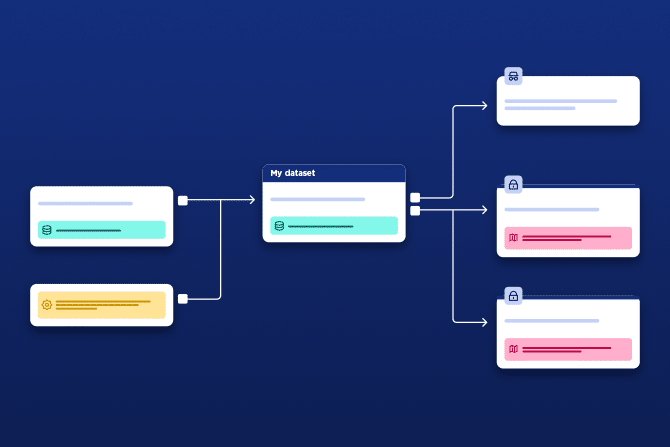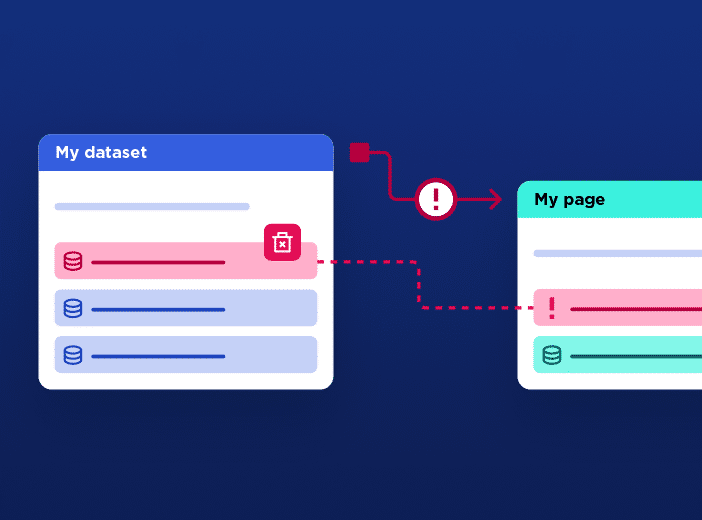Data lineage: the challenges and benefits
Data lineage has become crucial for enterprise data management. With the increasing volumes of data used in decision-making, it's critical to know where it comes from, how it's been transformed, and where it's flowing to. Data lineage brings this transparency, improving data quality, governance, and compliance.

What is data lineage?
Data lineage refers to the detailed monitoring of the data journey within an information system. It traces the origin of the data, the transformations applied, the systems involved and the final destinations. Essentially it provides a complete history of data flows and processing.
This tracking is especially useful in complex environments, where data moves between multiple databases, applications, analytics tools, and platforms. Data lineage ensures transparency on where the data came from and how it has evolved.
The challenges that data lineage solves
Data lineage addresses multiple major challenges for companies:
- Improving data quality: By clearly identifying the origin and transformations of data, it is easier to detect errors, inconsistencies, or duplication. This allows for rapid intervention to correct problems, ensuring that data remains reliable and accurate.
- Regulatory compliance: Due to regulations such as GDPR or Sarbanes-Oxley, companies must prove the traceability of their data. Data lineage makes it easier to demonstrate compliance by showing the entire data journey.
- Risk management: Understanding how data flows helps anticipate risks related to data security, confidentiality, or integrity.
- Process optimization: By visualizing data flows, companies can identify duplications, redundancies, and bottlenecks, and thus improve processing efficiency.
The concrete benefits of data lineage
The benefits of data lineage cover multiple key areas:
- Strengthened data governance: Data lineage is a pillar of data governance. It allows for better control over who does what with which data, ensuring greater accountability.
- Reduced costs and delays: By making it easier to diagnose data-related problems, data lineage reduces the costs associated with correcting errors and speeds up data projects.
- Audit facilitation: Auditors have a clear and complete view of data flows and processes, simplifying controls and reducing the risk of non-compliance.
- Increased trust in data: When users know that data is tracked and monitored, they have more confidence when consuming and analyzing it, and for using it for decision-making.
Data lineage and data marketplace: a strategic combination
Data marketplaces are playing an increasing role in modern data environments. They centralize access, discovery, and monetization of internal and external data. Data lineage is crucial to supporting these uses.
Essentially, a data marketplace brings together data from diverse, often heterogeneous, sources. Effective data lineage ensures the quality and transparency of this data. It provides users with a clear view of the origin, reliability, and transformations of the data available for consumption or sale.
Data lineage therefore helps to build the trust necessary for users to fully exploit the data made available on a data marketplace. It also helps technical teams manage data catalogs more efficiently, identifying flows and dependencies.
How to implement an effective data lineage strategy
To take full advantage of data lineage, organizations should follow key best practices:
- Map data sources and flows: Begin by inventorying data, its sources, the systems involved, and the transformations performed on it.
- Automate metadata collection: To avoid errors and ensure that information is up to date, automate the monitoring of data flows via dedicated tools.
- Engage stakeholders: Successful data lineage depends on collaboration between business teams, IT, data scientists, and compliance officers. Put structures in place to ensure engagement and collaboration.
- Integrate data lineage into global governance: Data lineage must not be isolated but must be integrated into a company-wide approach to data governance and quality to ensure a consistent, holistic strategy.
- Use the right tools: Specialized tools are available that allow you to track data lineage in a detailed and understandable way. The choice of specific solution will depend on the company’s data maturity and its specific needs.
Conclusion: Data lineage, a key asset for optimizing the data marketplace
Data lineage is essential to mastering the growing complexity of data in organizations. It provides complete visibility into the data lifecycle, driving quality, compliance, and trust. When combined with a data marketplace, it becomes a major driver to enable internal and external data to be fully exploited to drive value.
Opendatasoft supports organizations in setting up robust data marketplaces, integrating advanced features such as data lineage. This ensures greater transparency, simplified governance, and increased value from your data.
Contact our experts to find out how to enable and leverage data lineage in your own data marketplace.



